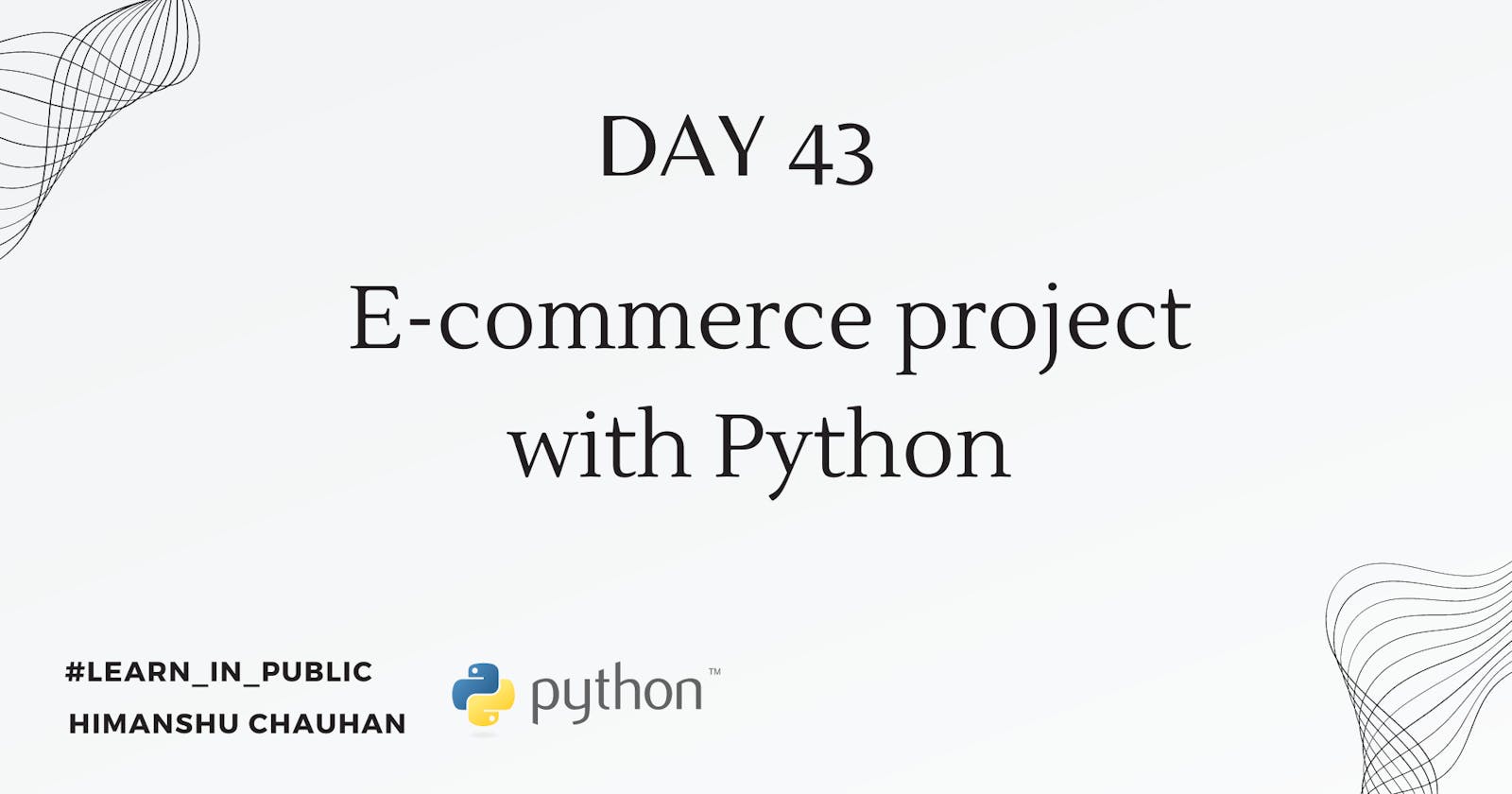Today, on the forty-third day of our Python learning journey, we're diving back into our e-commerce project. I'm excited to share that I've completed the remaining APIs for the cart feature, bringing us one step closer to a fully functional system.
Task done by today:
Bulk API: This API is to get products by IDs and these IDs we are providing in params.
@product_router.get("/products/bulk",response_model=List[Product]) async def getBulkProducts(ids: str = Query(...)): try: ids_list = ids.split(',') products = [] for id in ids_list: product = await get_product_collection().find_one({"id": int(id)}) if product: products.append(product) return products; except: print('An exception occurred')Cart APi: we have two APIs for the cart first one is to create and update the cart and the second is to get a cart.
To create cart:
@cart_router.post("/carts") async def saveCart(request: Request, new_cart: Cart_Type): if "Authorization" not in request.headers: raise HTTPException(status_code=401, detail="Unauthorized") token = request.headers["Authorization"] print("data: ", dict(new_cart.data)) try: payload = dict(verify_token(token)) user_email = payload.get("email") collection = get_cart_collection() # Check if cart already exists for the user existing_cart = await collection.find_one({"user_email": user_email}) if existing_cart: # Update existing cart await collection.update_one({"user_email": user_email}, {"$set": {"cart": json.dumps(new_cart.data)}}) else: # Create new cart cart_data = { "user_email": user_email, "cart": json.dumps(new_cart.data) } await collection.insert_one(cart_data) return {"message": "Cart updated successfully"} except Exception as e: raise HTTPException(status_code=401, detail="Invalid token")For getting the cart:
@cart_router.get("/carts", response_model=List[Cart_Response]) async def getCart(request: Request): if "Authorization" not in request.headers: raise HTTPException(status_code=401, detail="Unauthorized") token = request.headers["Authorization"] try: payload = dict(verify_token(token)) user_email = payload.get("email") collection = get_cart_collection() product_collection = get_product_collection() # Check if cart already exists for the user existing_cart = await collection.find_one({"user_email": user_email}) products = [] if existing_cart: # Update existing cart cart_str = existing_cart.get("cart") cart_obj = json.loads(cart_str) ids = list(cart_obj.keys()) for id in ids: product = await product_collection.find_one({"id": int(id)}) product_object = { "product": product, "quantity": cart_obj[id] } products.append(product_object) return products except Exception as e: raise HTTPException(status_code=500, detail="something went wrong")
In upcoming blogs, we'll optimize these APIs according to best practices, ensuring they are efficient and follow industry standards for robustness and scalability in our e-commerce project.
Project Link: https://bitbucket.org/himmu5566/ecommerce-backend
Thank you💕💕
